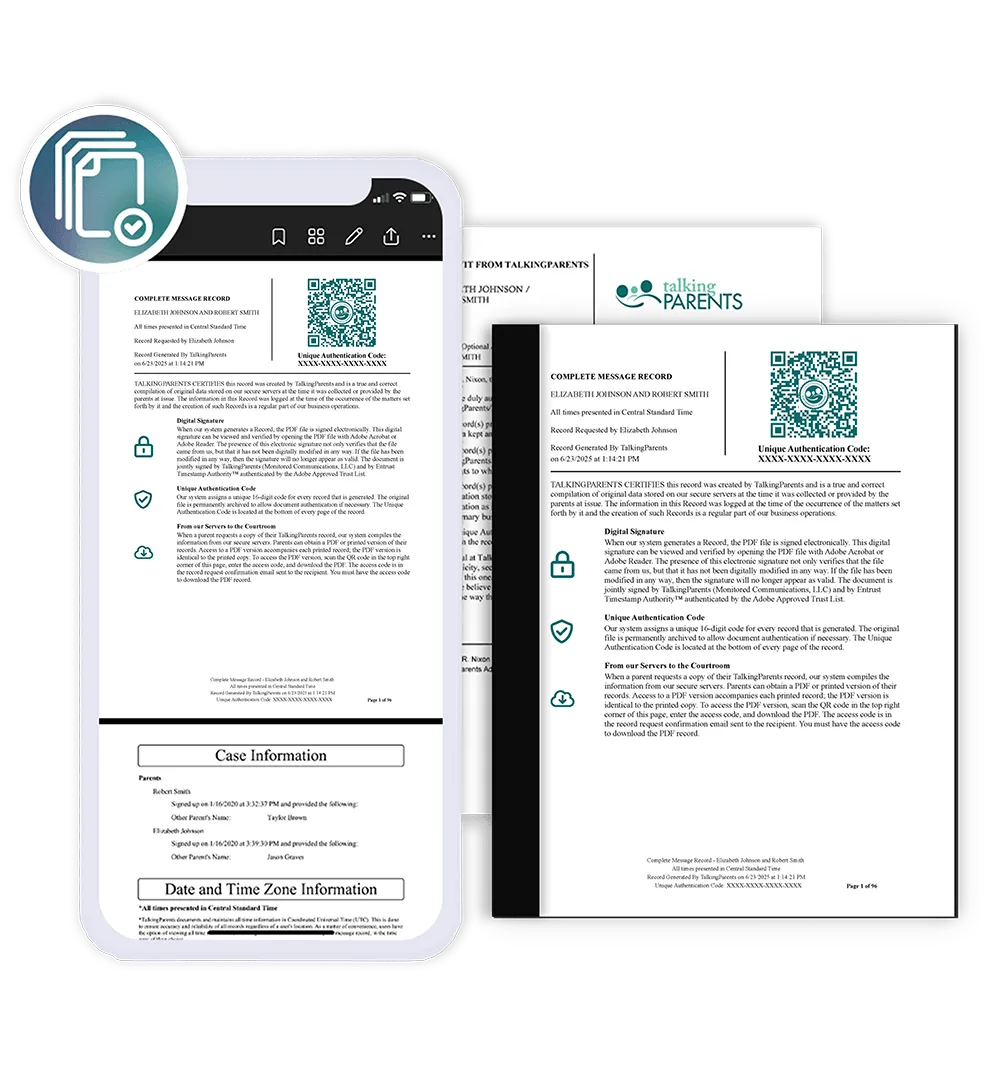A Domestic Violence Attorney’s Firsthand Experience with TalkingParents
Jill Whitbeck has been the Supervising Domestic Violence Attorney at Washoe Legal Services in Reno, Nevada, for nearly eight years. Whitbeck works in the domestic violence unit, where she represents victims of domestic violence in their protection order matters and family law matters, such as divorce, custody, child support, and more. Before coming to Washoe Legal Services, Whitbeck had a private practice for over a decade, and she’s been a licensed attorney since 1993.
- 4 min read

Court Orders
Whitbeck says she first started recommending TalkingParents about nine years ago when she was still working in private practice. She says every single family law case has some element of he said/she said, so that prompted her and her colleagues to start asking the court to order both parties to use TalkingParents.
“As attorneys started catching on, sometimes they would agree, but we have a lot of people that are unrepresented. They don’t have attorneys,” says Whitbeck. “In our protection order court, which for us as a separate division of the court, it’s a standalone case, the judge will not order it without due process to the other side because the judge doesn’t know what the technology situation is. Or the money situation.”
Over time, Whitbeck says it has gotten to the point where a parenting app is ordered in about 90% of her cases. She says now, it’s pretty much a 50/50 split when it comes to whether the attorney or the court is ordering the service. Whitbeck also says it’s rare for one of the parties to request the use of a co-parenting service and be denied, but it does happen.
“When the court will not order, it’s because the opposing side is unrepresented and also not present,” says Whitbeck. “If they have chosen not to appear, the court is wary of issuing an order without being able to verbally tell the person what they have to do to comply. So, there are times when it’s requested, and that request is denied. But, often, that means it’s still difficult for the parties to communicate, so they’ll circle back, wind up in court again, and once everybody’s there, the judge will order.”

Records
Whitbeck describes the TalkingParents Records process as straightforward and easy.
“We have the client order up their official Record. We usually just use the PDF,” she explains. “There have been times I’ve attached portions of the Record, and there have been times I have attached the entire Record for authenticity purposes. For hearings and trials, we bring in the entire Record so we can reference parts of it. It’s very easy to lay the foundation. The client just says, ‘Yes, this is the TalkingParents Record I ordered.’”
Whitbeck says she has dealt with situations in which the opposing party claimed that they allowed someone else into their TalkingParents account to write messages, therefore claiming the messages on the TalkingParents Record aren’t theirs. In cases like this, Whitbeck says the court still deems the opposing party responsible.
It’s password-protected, so they’re still responsible for what anybody else does in their account,” she explains. “And if I ever do have a problem with someone claiming they never sent a particular message, I would go through the authenticity that shows it’s a true and correct Record of everything that occurred. If it’s been used multiple times, it’s also suspicious that one message just floats in there when everything else is accurate.
Whitbeck says she has encountered a circumstance where statements made on a TalkingParents Record were considered hearsay by the court.
“It hasn’t impacted the case, but we’ve had the question come up over messages where someone types something like, ‘your mother told me, blah, blah, blah, and therefore, I’m not going to give you visitation,’” says Whitbeck. “Well, the ‘your mother told me’ part is hearsay. It’s what they were told by someone else.”
Whitbeck has never dealt with an objection regarding a TalkingParents Record that has officially impacted the case; rather, she says it’s been more of a discussion.
Advice
In situations where a TalkingParents Record has been used early on in a case and has to be reordered for something additional in court, Whitbeck says pagination is a huge advantage.
“In cases like that, I just attach the new pages of the Record. So maybe there were 20 pages when you first used the record, and now there are 40 pages. I have just attached the first two pages to show how far it went and then attached the last 20 pages to show the new stuff, as opposed to continuing to put the Record in its entirety into the courts. And the courts have been fine with that.”
Whitbeck says she has seen court proceedings take far less time because of TalkingParents.
“Although the TalkingParents Record can be voluminous, you can still tell the judge to just look at certain pages, whereas an SMS stream of text messages is much more voluminous, and there’s an authenticity question, which TalkingParents mitigates.”
Whitbeck highly encourages the use of TalkingParents’ Records as evidence because she says it makes her job easy and assists the parties involved.
“It helps very much in terms of the ‘he said, she said’ documentation and the authenticity of those communications. It also helps keep people accountable when you have parties who may have been behaving badly in the heat of the moment. Having them think about what they’re writing down, knowing that a judge may look at it later, that helps smooth things out for parenting.”